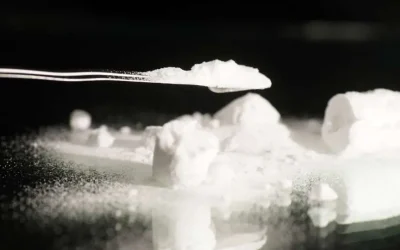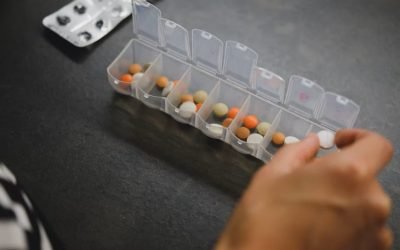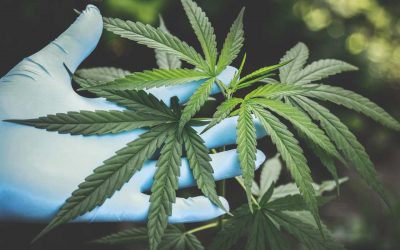Last updated: November, 2025
Speed, also known as amphetamine, is a stimulant that increases energy, alertness, and confidence. Many people first try it for its uplifting effects: to feel awake, sociable, or capable of keeping up with long nights or demanding work. But what begins as occasional use can easily turn into dependence.
Speed addiction develops when the mind starts to rely on the drug to feel normal or to function. It’s not just a matter of willpower; it’s a psychological cycle that becomes harder to break the longer it continues.
What Is Speed and How Does It Work?
Speed is the street name for amphetamine, a synthetic stimulant that affects the central nervous system. It causes the brain to release higher levels of dopamine and norepinephrine, chemicals linked to focus, energy, and pleasure.
The effects of speed usually last for six to eight hours. Users often feel more alert, energetic, and confident, and fatigue or hunger disappears temporarily. Because of this, the drug became popular in the party scene and among people with demanding jobs who want to stay awake or perform longer.
However, repeated use changes how the brain responds. Over time, people need increasingly higher doses to feel the same effectM a sign of tolerance. This process can quickly lead to psychological dependence and serious health consequences.
Causes and Triggers of Speed Addiction
There is no single reason why someone becomes addicted to amphetamines. The causes are a combination of social, psychological, and personal factors.
For some, the attraction lies in the euphoria and confidence the drug creates at parties or festivals. For others, it’s the temporary relief from exhaustion or pressure at work. In both cases, the momentary boost is followed by a crash: feelings of tiredness, irritability, or sadness. This “come down” often pushes people to use again, creating a vicious cycle of dependency.
Because speed affects energy and mood, people who are stressed, anxious, or struggling with low self-esteem may be more vulnerable to its effects. The drug can make them feel in control, but that control quickly fades when tolerance builds and daily life begins to revolve around using.
When Does Speed Use Become an Addiction?
The line between use and addiction often blurs gradually. A person may start by taking speed occasionally and end up feeling unable to function without it. Some of the signs of speed addiction include:
- Needing much larger amounts to feel the same effect
- Feeling exhausted, anxious, or depressed when not using
- Failing to stop or cut down despite wanting to
- Neglecting work, study, or relationships
- Spending increasing time or money on the drug
- Withdrawing from friends or activities that don’t involve using
Although speed addiction usually doesn’t cause physical withdrawal like alcohol or opioids, the mental dependence can be intense. People may experience low mood, fatigue, and a lack of motivation when they stop; symptoms that make relapse more likely without support.
Psychological Consequences of Speed Addiction
Amphetamine abuse affects both mood and perception. With frequent use, the brain’s reward system becomes overstimulated, leading to emotional instability and difficulty concentrating. Common symptoms include anxiety, irritability, insomnia, and paranoia.
Some individuals report feeling detached from reality, a state known as depersonalization or derealization. In higher doses or prolonged use, the risk of psychosis increases, with hallucinations or severe confusion that can require medical attention.
These psychological changes are often accompanied by depression once the effects wear off. The brain’s natural production of dopamine slows down, leaving the person feeling flat or hopeless. This emotional crash can fuel the desire to use again, reinforcing the addiction.
Physical Effects of Long-Term Speed Use
Chronic amphetamine use can take a heavy toll on the body. Because the drug pushes the body beyond its limits, exhaustion becomes common. Appetite suppression often leads to significant weight loss, and dehydration or nutrient deficiencies may follow.
Long-term stimulant use also puts serious strain on the heart and circulatory system. High blood pressure, irregular heartbeat, and even heart attack or brain hemorrhage can occur, especially when large doses are used or combined with other drugs.
The physical exhaustion, coupled with malnutrition and poor sleep, can leave the body depleted, making recovery more challenging if help is delayed.
Social and Emotional Consequences
Speed addiction doesn’t only affect the individual, it reshapes relationships and daily life. As the drug takes priority, responsibilities at work or home often suffer. People may isolate themselves from friends who don’t use, creating a smaller and more fragile social world.
The emotional crash after each use can bring guilt, shame, or hopelessness. Over time, this combination of exhaustion and disconnection can lead to loneliness or depression. Recognizing these patterns early is essential to breaking them.
How to Overcome Speed Addiction
The first step toward recovery is acknowledging the problem, which can be one of the hardest parts. Admitting dependence doesn’t mean failure; it means being ready to take back control with the right support.
Speed addiction treatment focuses on breaking psychological dependence and helping the brain and body recover balance. Professional rehab programmes often combine cognitive behavioural therapy (CBT), group support, and holistic therapies that rebuild emotional and physical wellbeing.
In a supervised environment, individuals can rest, eat properly, and receive therapy to manage cravings and low mood. Over time, sleep and energy begin to normalize, and life without speed becomes possible again.
Recovery and Long-Term Healing
Healing from stimulant addiction takes time, but recovery is achievable. The process involves learning to manage stress and emotion without relying on substances, rebuilding trust in relationships, and restoring confidence.
Holistic treatment approaches (combining therapy, relaxation, nutrition, and connection with nature) help restore the nervous system and strengthen resilience. With continued guidance, people can rediscover calm, motivation, and a sense of stability.
Frequently Asked Questions: Speed Addiction
Speed is a street name for amphetamine, a stimulant that affects the central nervous system. It’s often produced illegally and may be mixed with other substances, which increases risks.
Although there are usually no physical withdrawal symptoms, psychological effects like fatigue, irritability, or depression are common. These can be managed safely with professional support.
Prolonged use increases the risk of heart problems, exhaustion, malnutrition, and mental health issues such as paranoia or psychosis. The longer it continues, the harder it becomes to stop.
Treatment typically includes therapy, emotional support, and lifestyle recovery. Many people benefit from inpatient care in a safe, structured environment that helps break the cycle of dependence.
Yes. With proper care, rest, and ongoing support, the brain and body can heal. Many individuals go on to live balanced, fulfilling lives without the need for stimulants.









